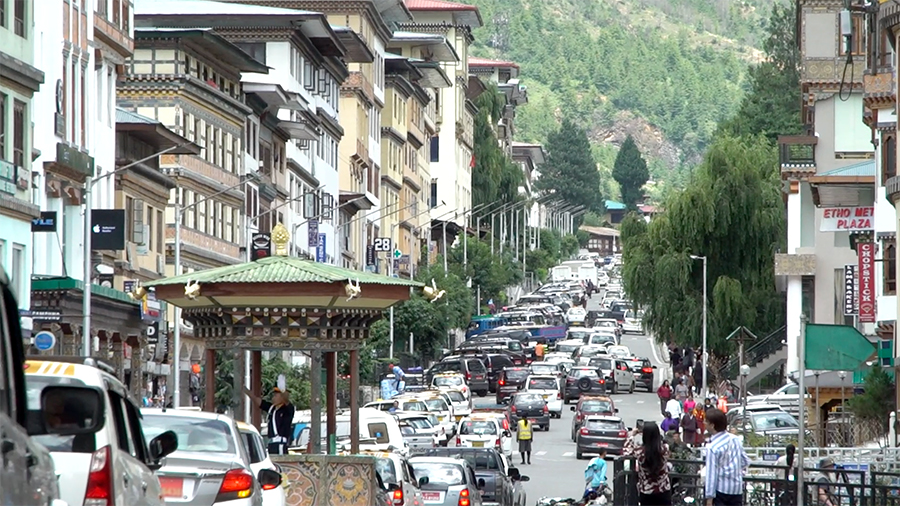
After the parliament passed the Pay Revision Act last month, public servants in the country are enjoying a 50 per cent minimum salary hike. While this is an encouragement for the public servants, it has left the private sector employees concerned. They say the increased salaries of public servants are already leading to a rise in the cost of living.
Call it inflation or the impact of the pay hike or increase in price at source, the prices of goods including essential food items are increasing. For instance, a bag of Raj Bogh rice weighing 25 kilograms which was Nu 1090 last month now costs Nu 1220. And the private sector employees, especially those earning meagre monthly salary are the hardest hit.
Private sector employees in Thimphu who did not want to comment on camera said it is difficult to live in the capital as prices of commodities such as rice and fuel increase rapidly.
“Inflation is growing rapidly in Thimphu. The price of vegetables, groceries and petrol has increased. For private sector employees like us, it is difficult to sustain,” said a private sector employee.
“My monthly salary is Nu 10,000. From that, I have to pay Nu 5000 as house rent. And I buy groceries and other necessities with the remaining which leaves me without any saving,” said another private sector employee.
The private sector employees in other districts shared similar views.
The concern is not limited to just the affordability of food and rent. Some are worried if they will be able to provide a decent education for their children.
“With the increase in the wages of civil servants, the prices of commodities have increased. For private sector employees like us, we would be able to afford only two meals a day instead of three,” said a private sector employee in Tsirang.
Likewise, a private sector employee in Paro said that it is disheartening to not get a pay hike reasoning that those working in the private sector have to work extra hours compared to some of the public servants.
She said that private sector employees will be left with no other options but to leave for better opportunities abroad if the working environment and wages are not made desirable like the public servants.
“Our salaries are increased only if our sales go well. If not, our salaries are fixed. My biggest worry is that with the increased prices of commodities, we will not be able to sustain. Our salaries will exhaust by mid of the month or within the first two weeks since we have to pay rent and buy basic necessities.”
Another private sector employee from Trashigang said “the prices of commodities have increased with the pay hike. For private enterprises like ours, our business is not going well due to which we receive less salary. It is very difficult for us.”
With the pay hike entitled only to public servants for now, all that private sector employees can do is hope that inflation remains under control in the country.
The current inflation rate in the country stands at 3.83 per cent.
As proposed by the Sixth Pay Commission, the parliament endorsed the Pay Revision Act last month to ensure that public servants are able to maintain a reasonable standard of living with their salaries.
Tashi Yangden & Bureaus
Edited by Phub Gyem










